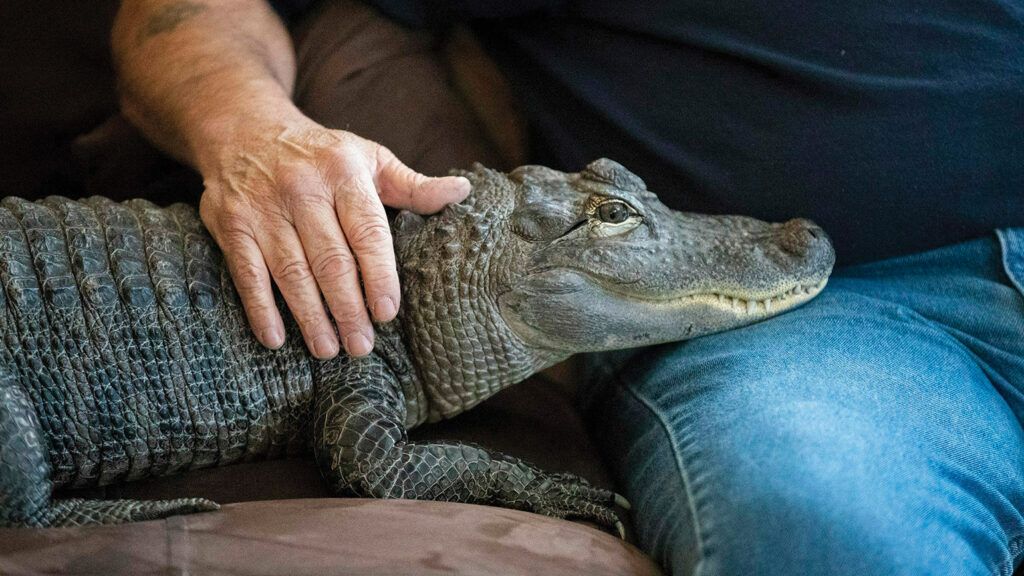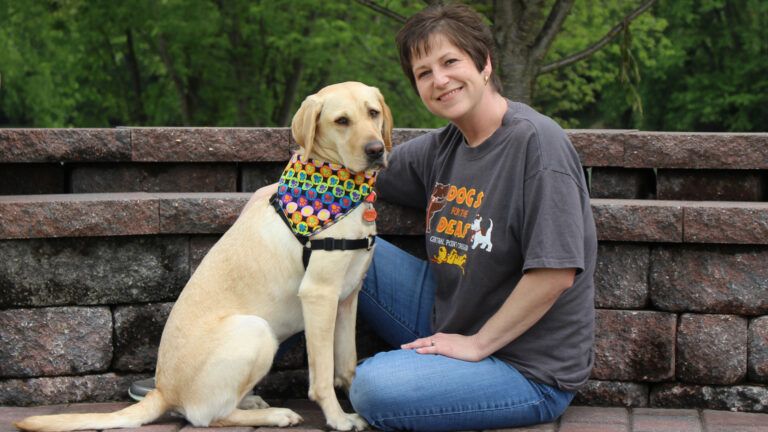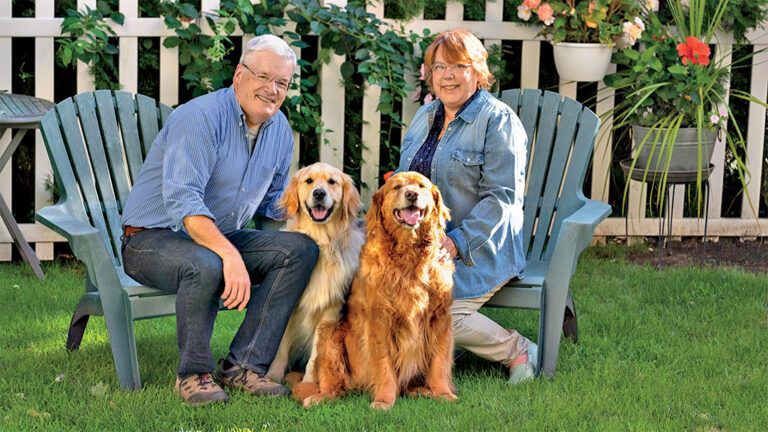Cute and calming is how most people would describe the dogs, cats and bunnies that visit hospitals, schools and nursing homes to offer emotional support. Scary and dangerous are the words many would choose upon seeing Joie Henney’s comfort companion. His name is Wally, and he’s a five-foot-long alligator.
Joie (pronounced like Joe) grew up on a farm in Dover, Pennsylvania, an “adrenaline junkie” who delighted in handling poisonous snakes and head-butting his pet bull. He has been a Marine, a bull rider, a construction worker, a woodworker and a parent—a full, interesting life. It got even more interesting three years ago, when friends in Florida offered him a “nuisance” alligator named Wally.
Alligators are deemed a nuisance when they prowl backyards, posing a threat to people or pets, but removal means they’re either killed or put into captivity. Joie said he’d take Wally in. What do you do when a 14-month-old alligator arrives at your door? “I held him a lot,” Joie says. Then he put him in an aquarium. Wally now enjoys a 300-gallon basin (a sturdy pond liner) in the center of the living room. It’s also a prime TV-viewing spot for the reptile, whose favorites are Gator Boys, Swamp People and The Lion King. “If you start that movie and he hears the music, he’ll stop eating. He’s mesmerized by it,” Joie says.
Joie says Wally is like a toddler—crazy one minute and affectionate the next. He’ll stick his head in a kitchen cupboard and start scattering canned goods. But he’ll also crawl up on the couch and rest his head on Joie’s lap.
Some may say he’s jealous of the two other alligators in the house, Scrappy and Luna (both rescues who joined the family after he did), because he flips water on Joie when Joie holds them. Joie is convinced Wally acts silly to make him smile—something that was tough for him to do not long ago. The deaths of several family members and four close friends within a brief period sent Joie into depression. “I had no desire to do anything,” he recalls. When his doctor asked him to think about what truly makes him happy, “I realized it was Wally.” Now Wally is a registered emotional support animal—he even wears a medallion on his harness that recognizes his role in Joie’s life.
To better socialize the gator, Joie takes Wally to senior centers and schools—sometimes with his teen stepsons—and he has witnessed how his scaly friend lifts others’ spirits too.
At one school, Wally met a boy with Tourette’s syndrome. “While he was petting Wally, his tics stopped,” Joie says. “Wally was about to lose a tooth, which happens often, so I pulled it and gave it to the boy. I still get letters from his family about how much that tooth means to him.” Understandably, people are skeptical that a 65-pound alligator is safe to be around, but Joie insists that he has trained Wally well. “He knows commands and doesn’t open his mouth around people. He might hiss, but that’s his way of saying hello.” Wally won’t eat unless he’s inside his pond and hears the sound of Joie’s clicker. He’s also terrified of cats.
The real danger comes when people get alligators and crocodiles as pets, then can’t care for them once they are grown. Joie is building a habitat where he can give abandoned alligators a home. He may need a bigger TV, though, so they all can watch The Lion King together.
Follow Wally on Facebook @wallygator and on Instagram @wallygatornjoie.
Did you enjoy this story? Subscribe to All Creatures magazine.






